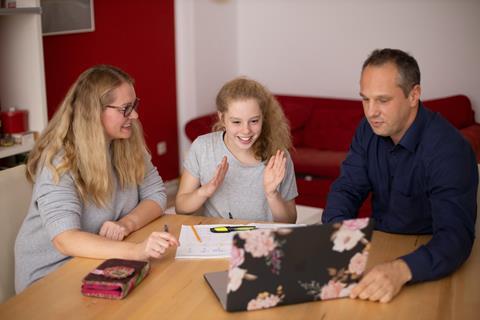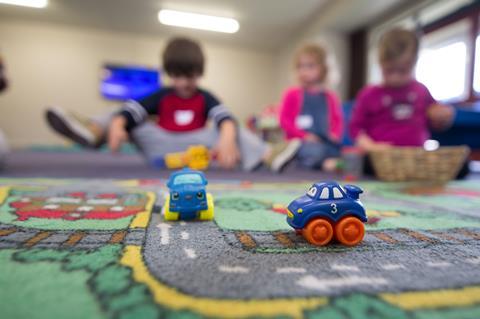We hear from Justine Lee, who has extensive experience working in the learning outside the classroom sector, on her experience and recommendations for getting permission from parents.

My experience
I couldn’t quite believe that I was about to refuse permission for my son to attend the annual school residential especially as someone who knows about and believes in all the amazing benefits of school trips.
As a teacher, much effort goes into planning and organising school trips, whether it is a day trip to a local museum or a week-long geography field trip to Iceland.
Learning objectives are defined. Conversations are had with venues, travel companies, coach or train operators. Costs are finalised, itineraries are planned and schemes of work are developed to integrate the trip with classroom-based learning. A case is put together for the SLT. Finally, permission slips are sent to parents/carers.
Parents/carers come a long way down in the communication and information-giving process. If a particular trip is an annual occurrence, notifying parents can feel more of a formality than something that needs careful consideration.
However, it is parents/carers who pay for the trip. Parents/carers who need to approve their child attending. Parents/carers who need to have confidence that their child will be safe and cared for.
In this situation, it seems that much of this had been forgotten. There were two particular issues:
Lack of parental engagement
The trip was an established annual event. Every Class 9 goes on this particular residential. The school have been organising it for more than a decade. Within the school, it was a well-known, well-understood venture. However, the majority of children in this particular year group were the eldest child in the family so for the vast majority of parents it was their first exposure to the trip. There was very limited awareness of the trip. Any information was anecdotes from your child’s classmates, not always the best ‘sales’ approach.

The permission slip simply stated the name of the trip, cost and when we needed to pay. The only other information that I had to go on was gossip from my son which boiled down to awful food, sleeping in tents, uncomfortable beds, hard work and that ‘everyone’ is miserable.
Did I really want to spend several hundred pounds on this?
The second issue was timing
In the haste to provide the class with the experience as soon as possible after pandemic restrictions were lifted, the permission slip arrived just three months ahead of the planned trip and deposits were needed within the next few weeks.
I also had an email from my daughter’s class saying permission slips would be coming for their class trip. Therefore, I had two trips happening in close succession requiring payment imminently.
As it turned out, I wasn’t the only parent who was staring aghast at the slip, there were grumblings on emails, mutterings in the car park. The school faced a revolt. This so easily could have been prevented.
Tips for ensuring it doesn’t happen at your school
Don’t assume: don’t assume parents/carers know about the trip or what is involved. There will always be at least one family who is unaware, and for those families who may know of the trip, things may have changed since they were last involved.
Keep parents informed: gossip thrives where information is absent, and parents do talk to each other. Get ahead of the situation and maintain control of information being spread. Consider holding an information evening well ahead of the planned trip where parents can find out more about the experience. Incorporate the talk into a regular parental event such as during a parent’s evening, or year group familiarisation session.
You don’t need to have all the plans in place, the main purpose is to ensure parents know what is happening.
Remember to cover the fundamentals:
• Where will they be going?
• How will they get there? Will students need passports or visas? This can take several months to organise so advance notice is essential.
• Why are you organising this trip? What is the purpose? What will the students get from the experience?
• What will they be doing during the trip? Share a sample itinerary, discuss the different activities that they will do.
• What will the food be like? It may seem trivial, but it is an important factor for confidence building with parents and they, in turn, can help to prepare their child.
• Who is leading the trip – is it organised by an external provider? If so, who is it? Do you have any photographs of past trips, any information about the provider and their experience? Are they an accredited provider?
Consider having pupils who have previously been on the trip attend the event to talk about their experiences – what did they think of the trip? What difference did it make to them? Or make a film of these stories and photos from a trip to show at the information evening
Other considerations to make
Look at what else is happening in school around the time of your trip: you want your trip to take place at the best time in your student’s learning journey, but what else is happening within the school at that time? Are there other trips taking place? Talk to your Educational Visits Co-ordinator to get an idea of what is going on and consider how it could impact parents/families.
Plan ahead: as well as giving you more time to get the fundamentals of the trip in place, planning ahead means you have more time to talk to parents/carers about the trip.
Reading this you could well be thinking that it is all basic information. It is, and it is so easy to do, but it is also so easy to forget to do it. Risk assessments are essential, check lists are essential. Keeping parents on side and informed is just as important. Regular communication helps parents/carers to have confidence in you, the school and the trip provider. It builds trust and ultimately makes your job easier.

So, what happened in my situation? Did I ever sign that permission slip? I didn’t completely trust the provider, and I had lost a lot of trust in the teachers due to how everything had been handled. My son didn’t hugely want to go given what he had heard from older friends. But I know the impact that residentials can have and how they help to forge such strong bonds between students. I knew that whatever I thought about the trip, my son would miss out on this if he didn’t attend, so I reluctantly signed the slip.
Several weeks later I waved him off and spent a week fretting about how unhappy and hungry he was. A week after that, I nervously stood in the school car park waiting for him to return. He had had the best time! The food was great, they slept under the stars one night, he loved all the activities and the work. He spent time with people in the class who he didn’t normally interact with and realised they are actually ok! Above all, he loved being away with his mates.
Over the coming days and weeks, I noticed greater confidence, a greater work ethic and he started talking about developing a career based on some of the activities that he had carried out during his time away.
The relief amongst us parents was palpable. I will have no problem in signing that permission slip when my daughter reaches that year, but it could have been less stressful all round if parents had been considered from the start.









